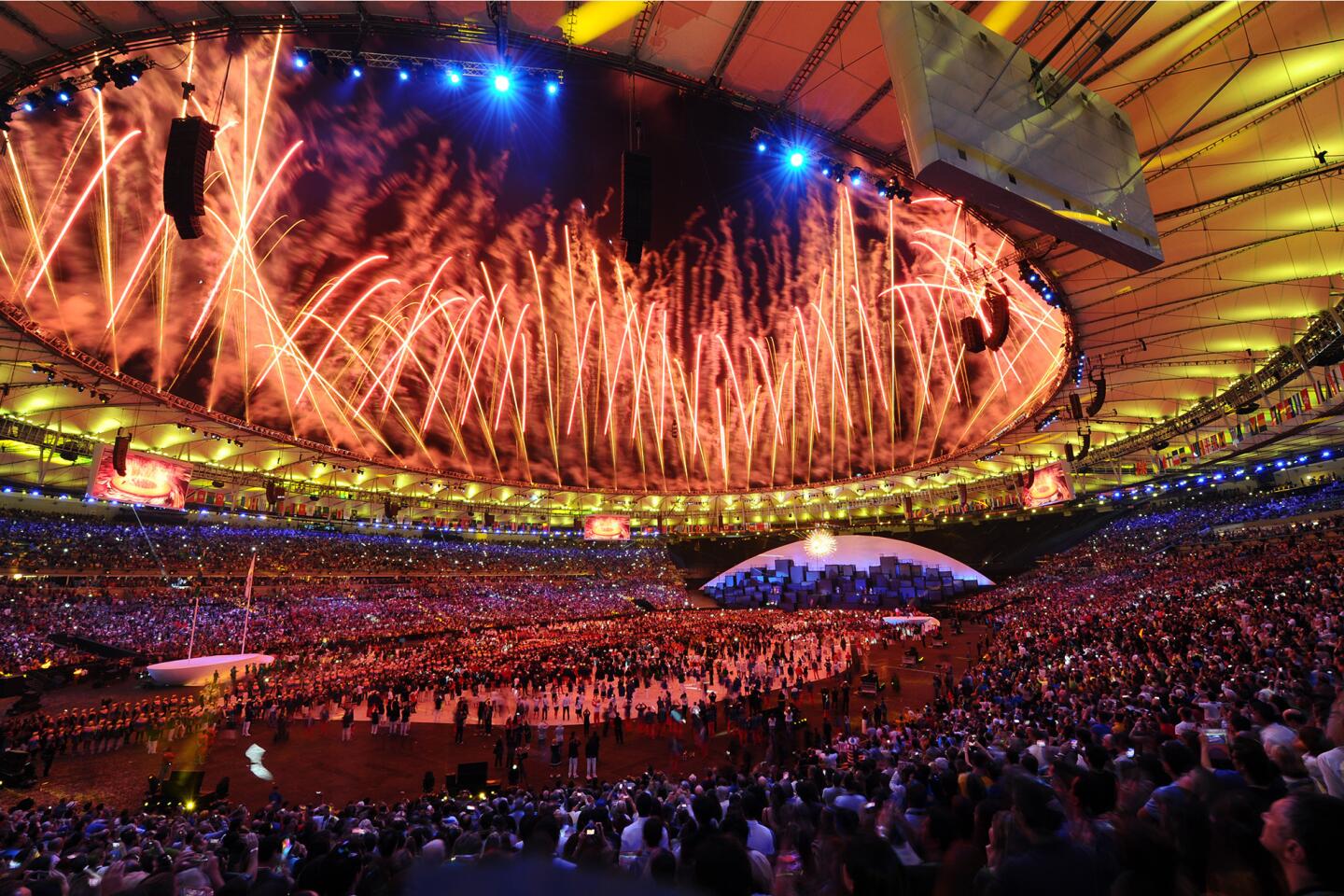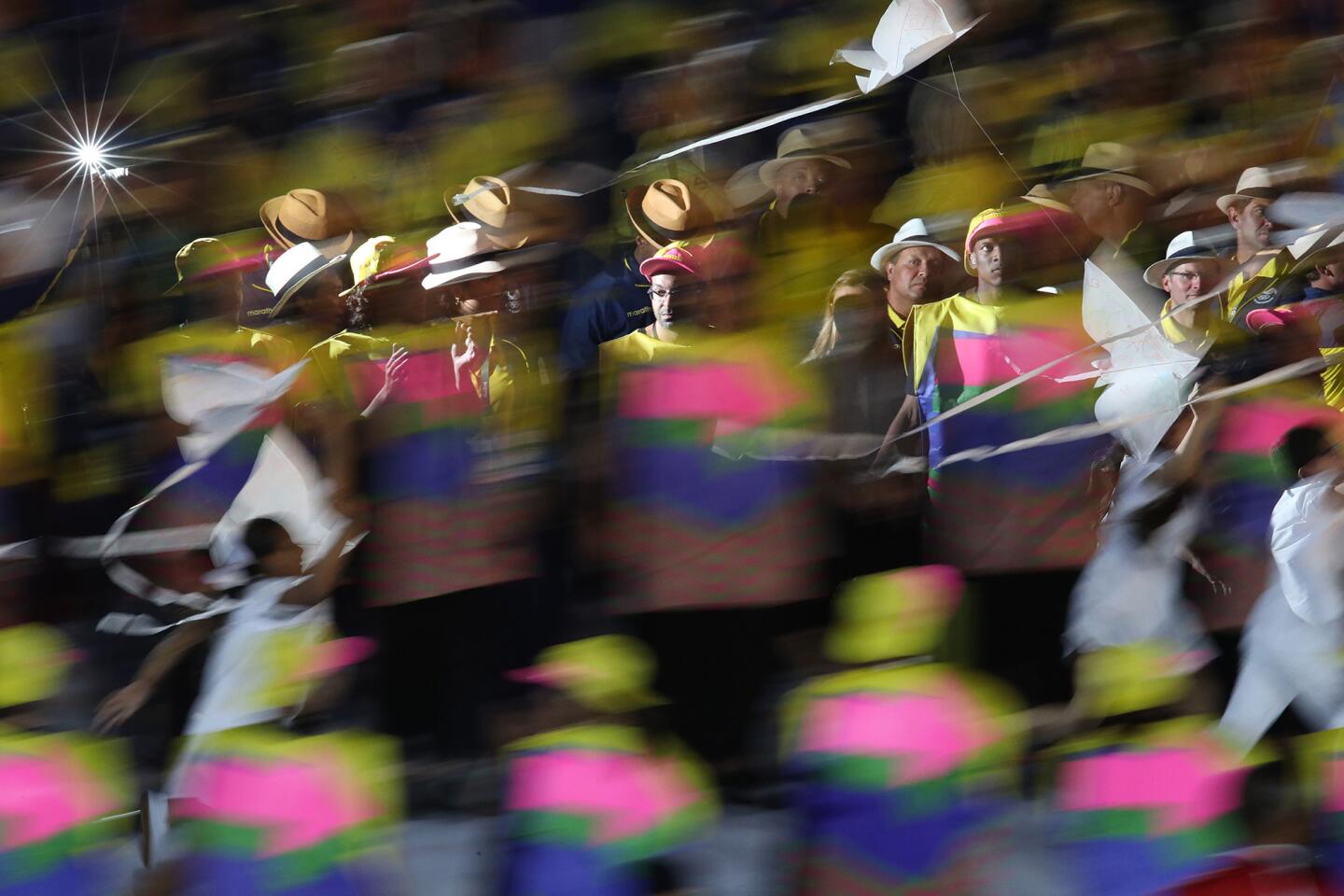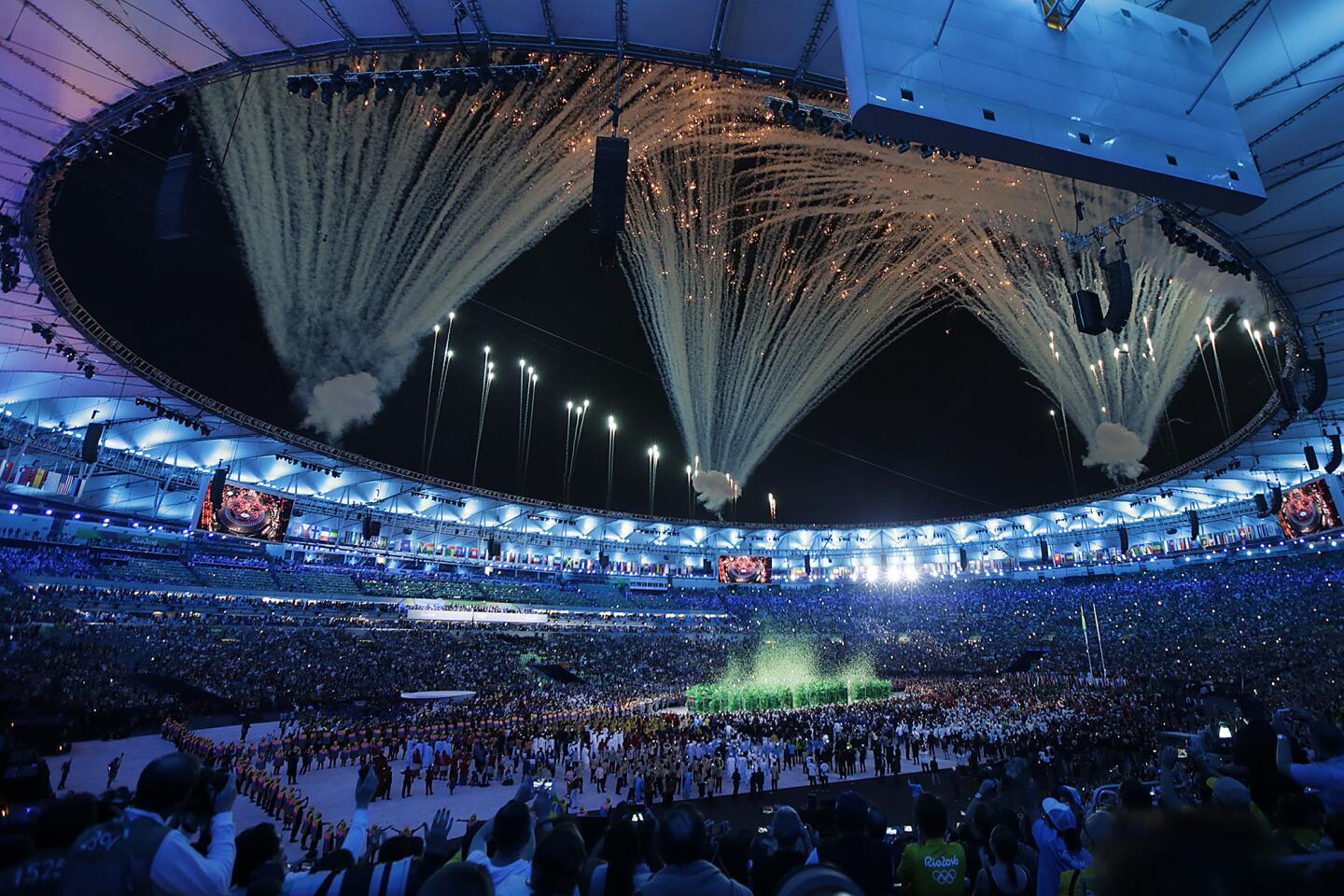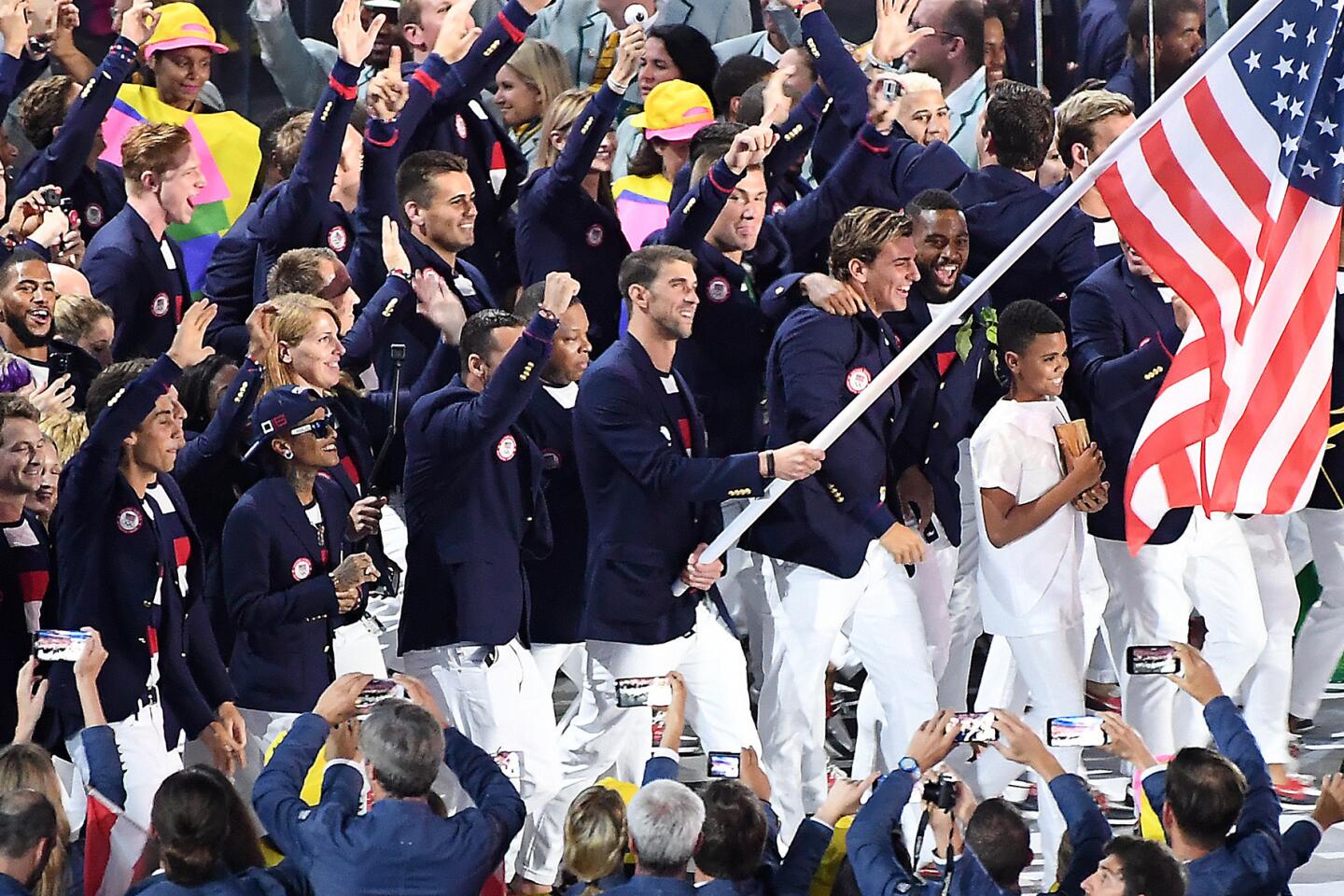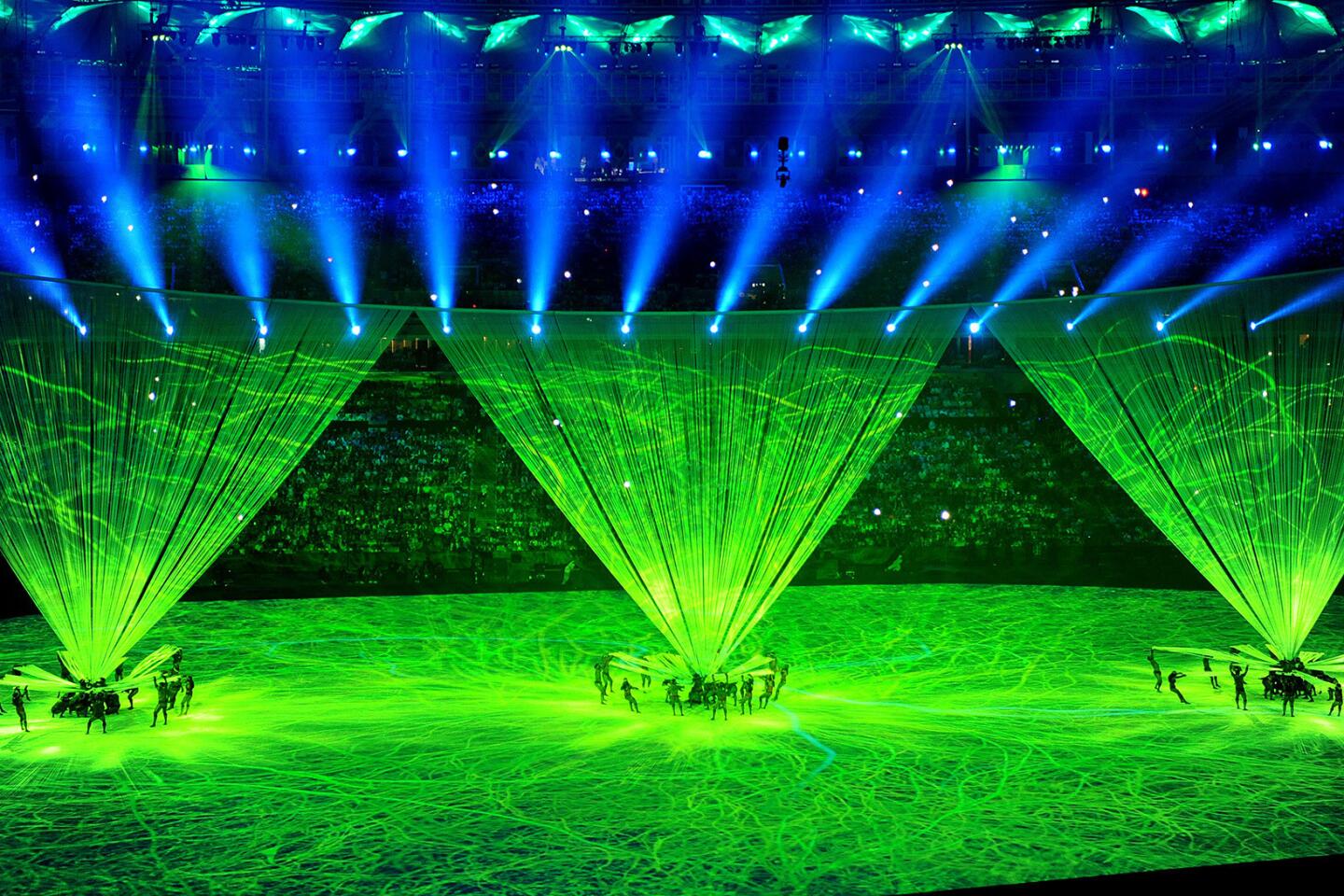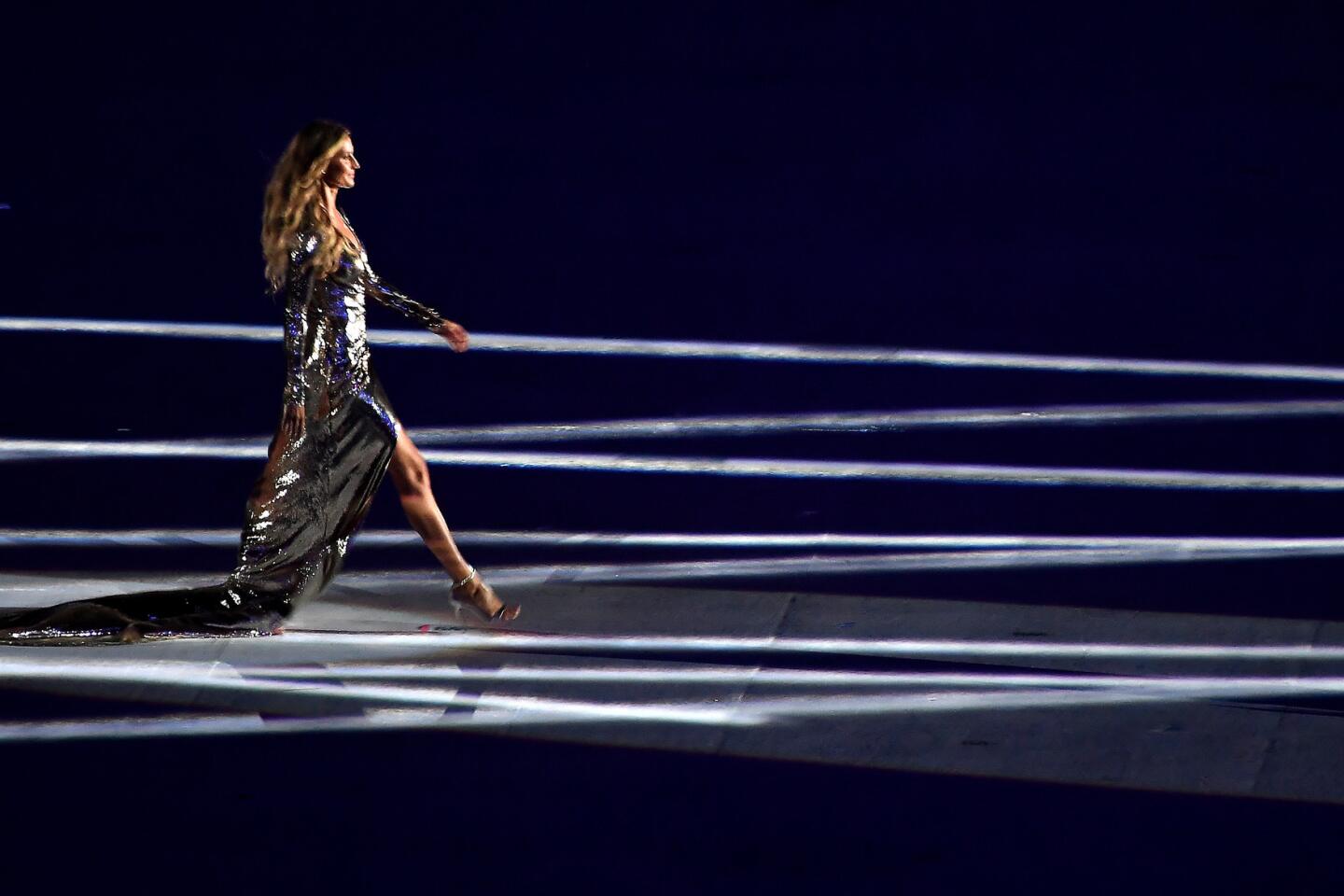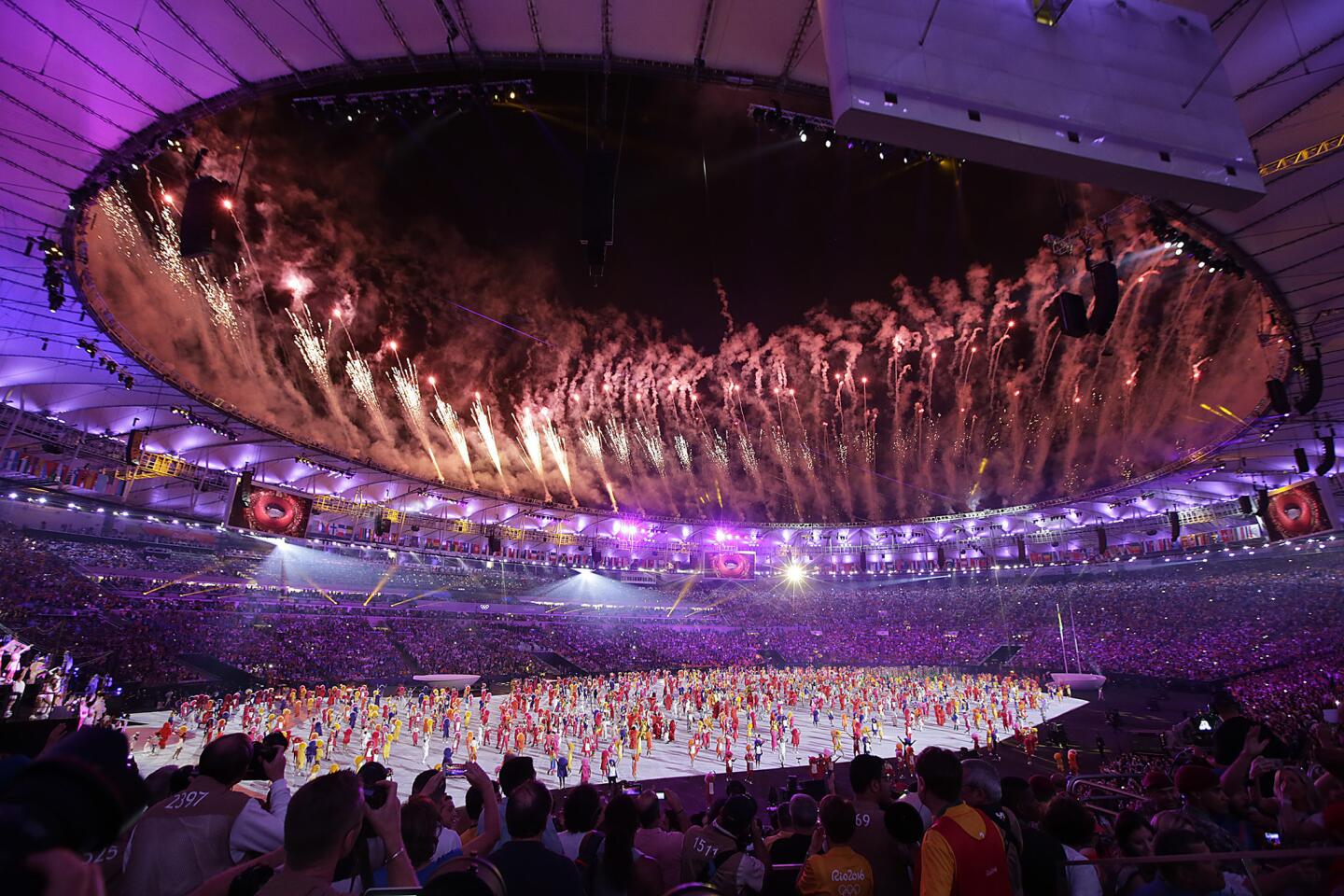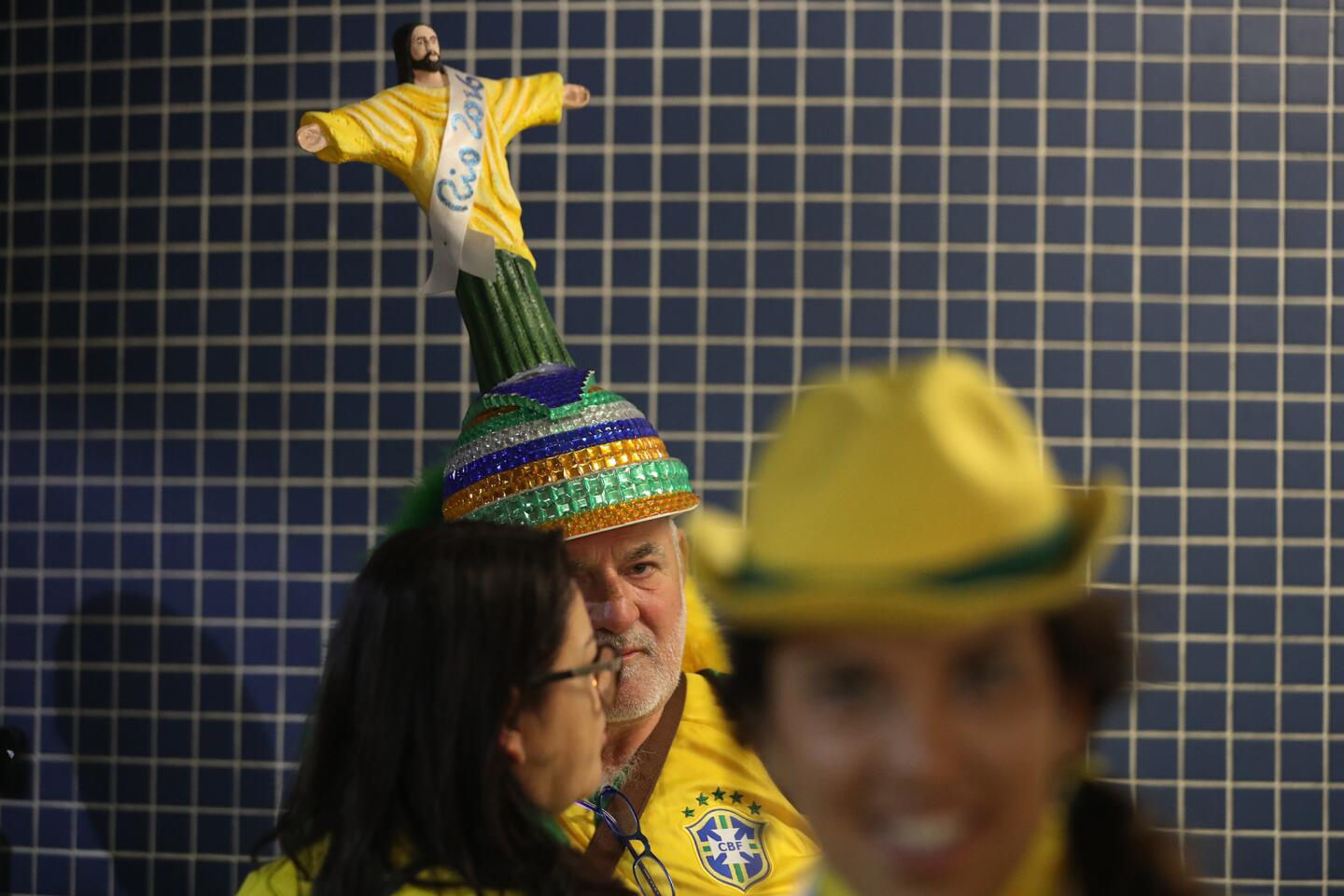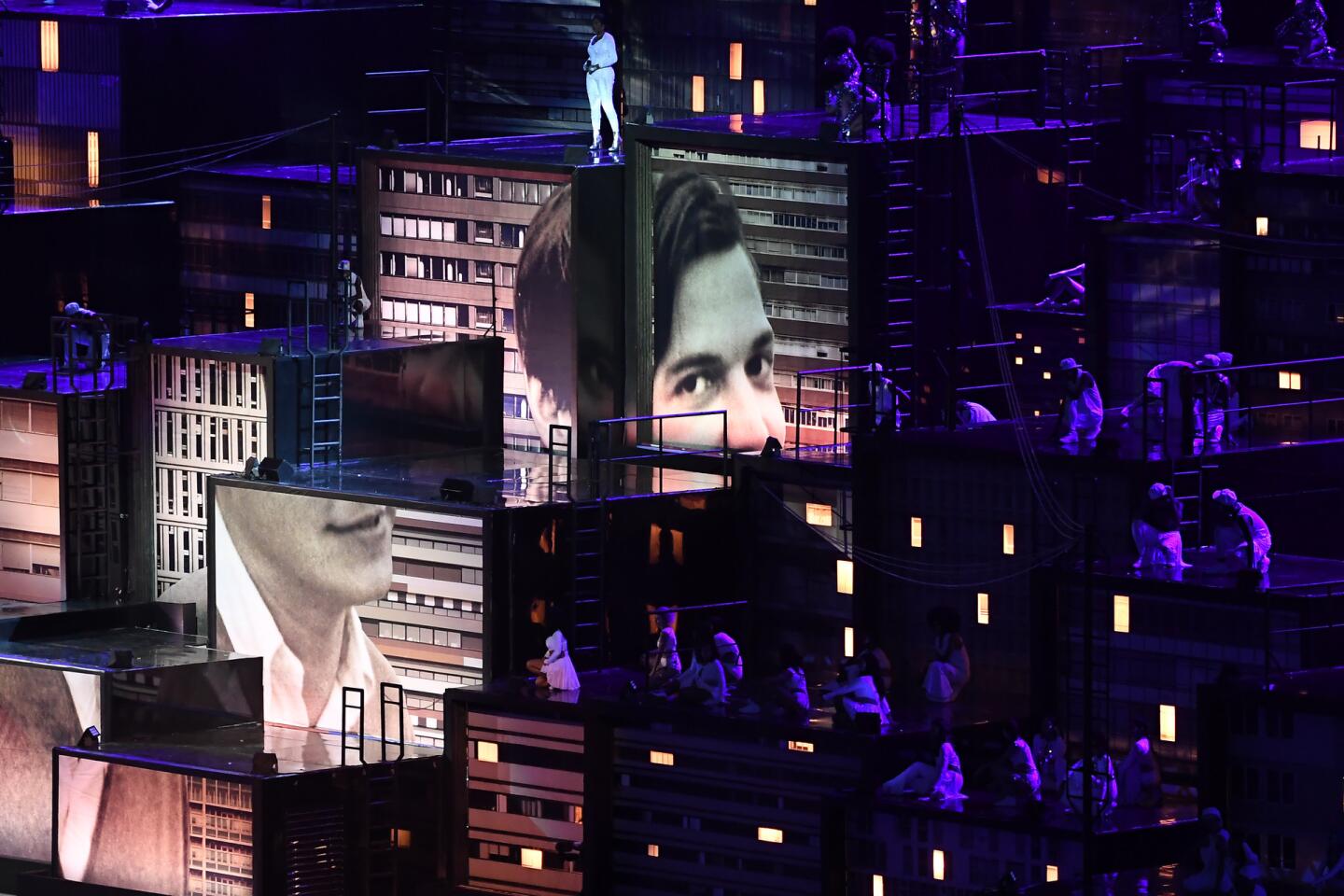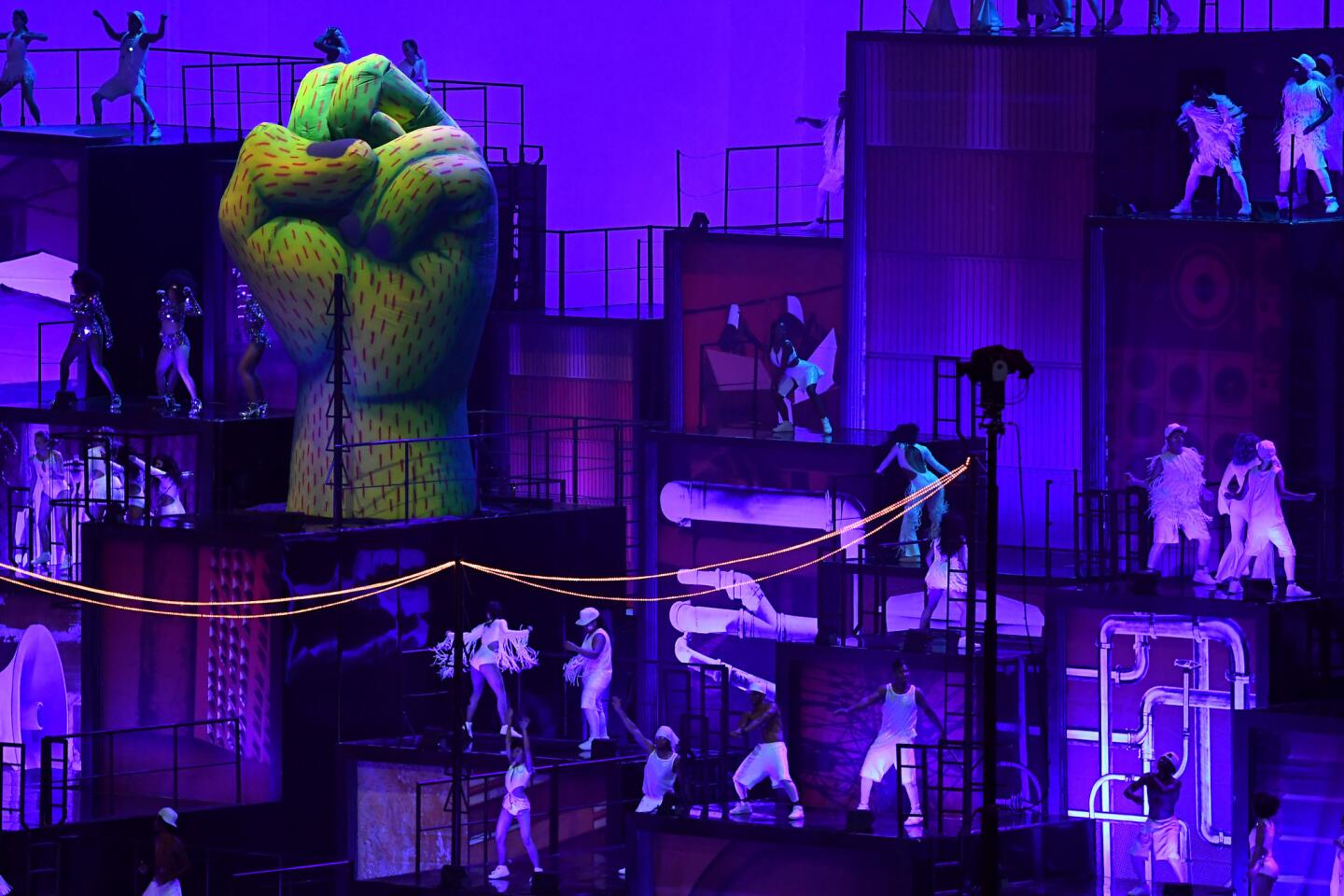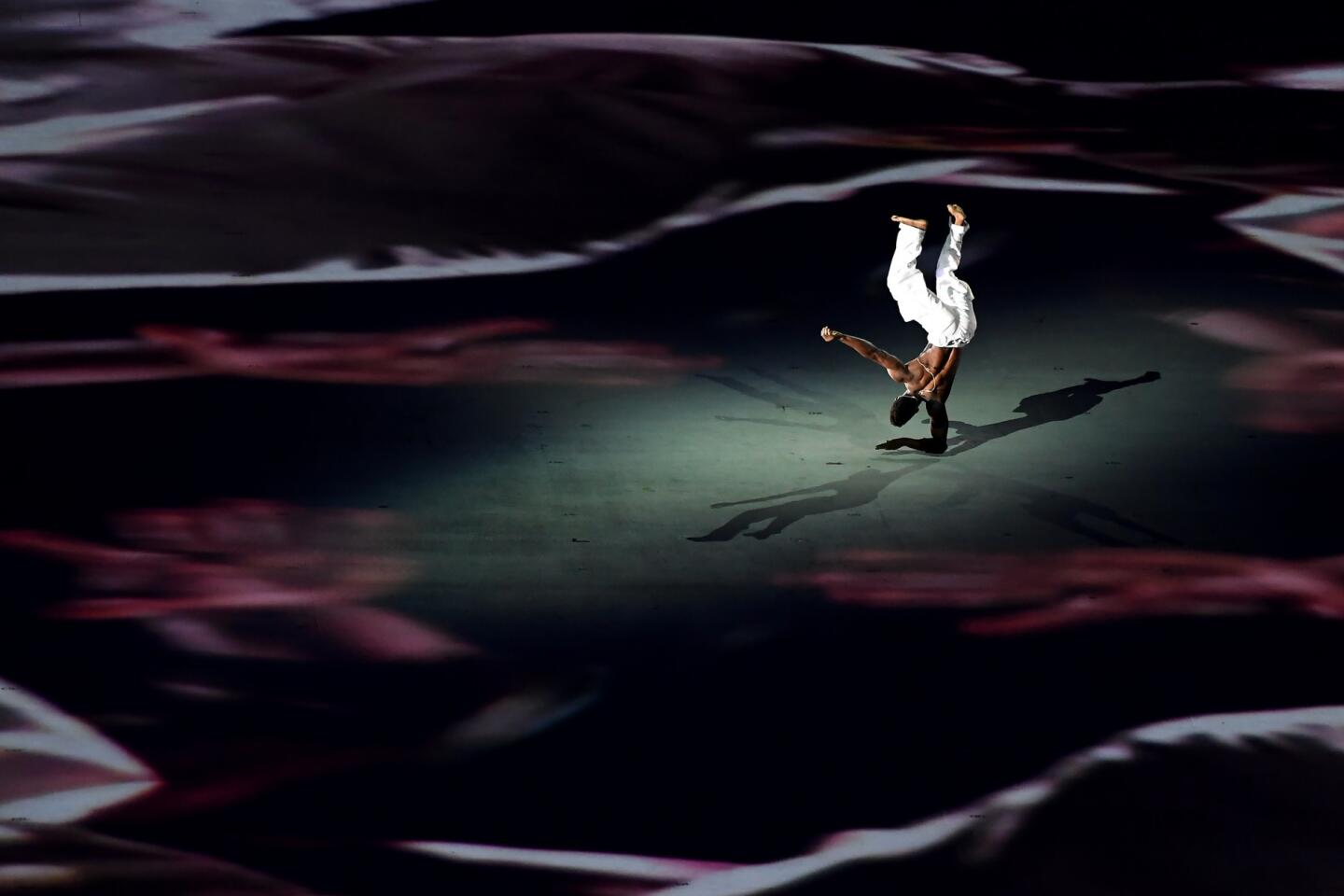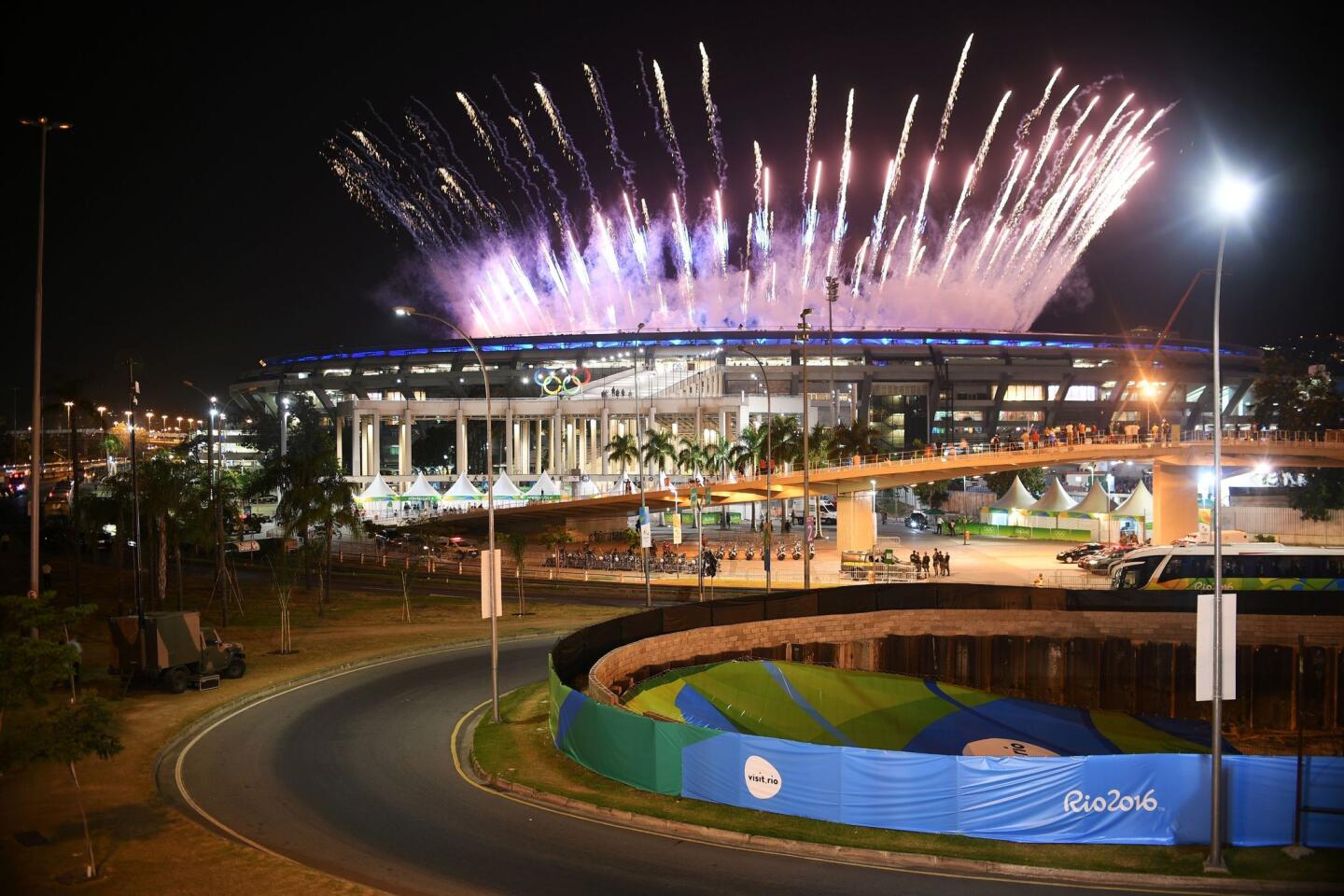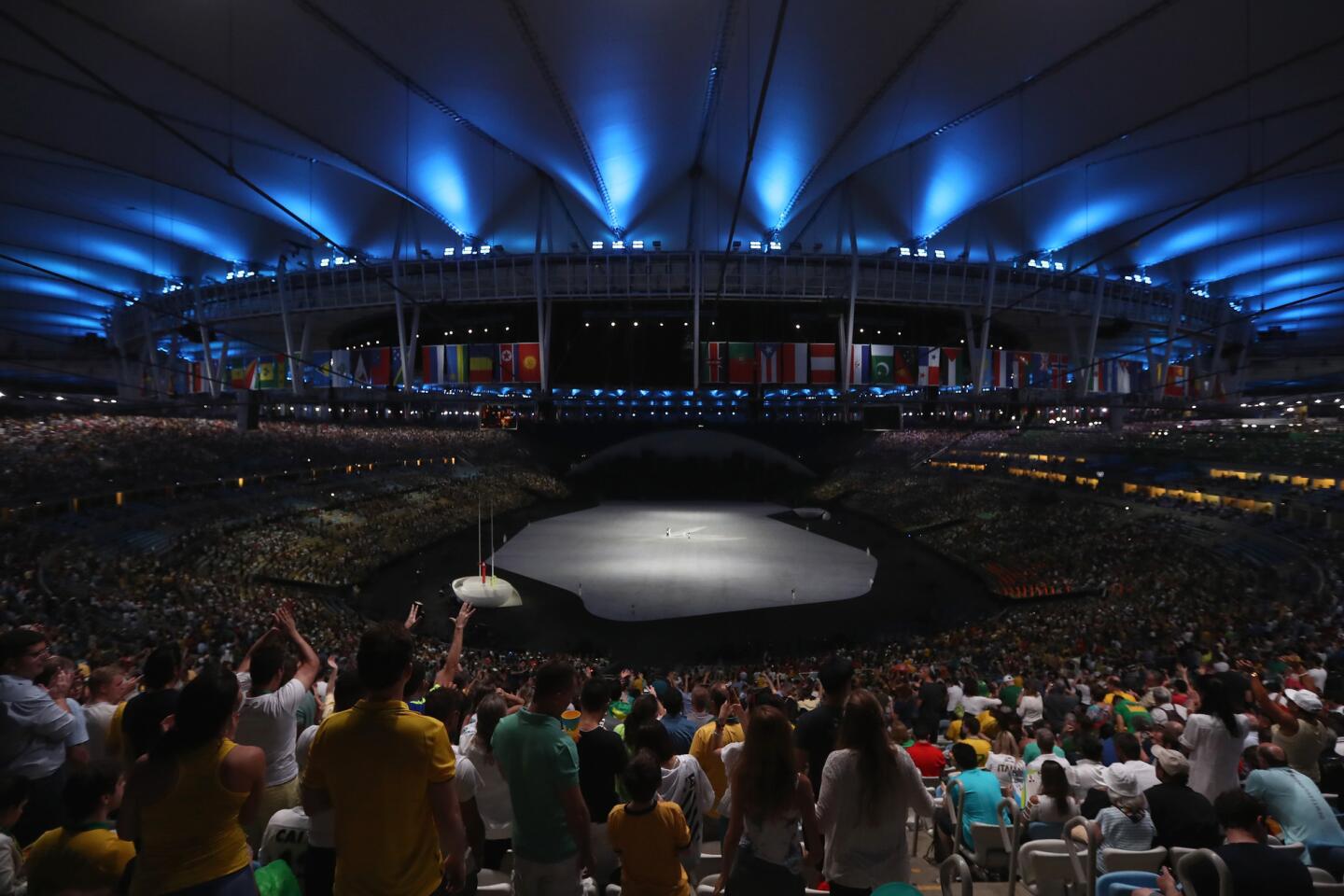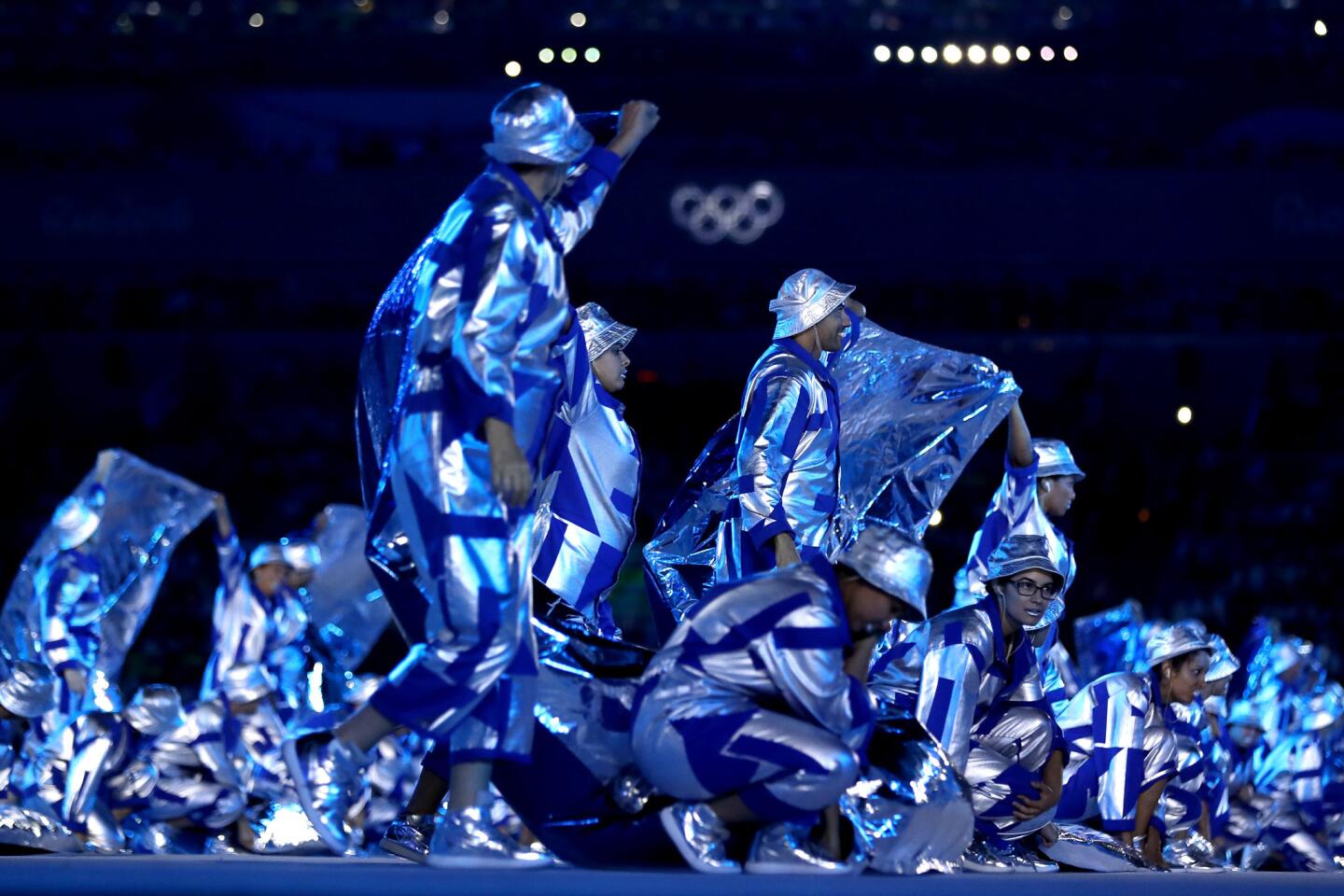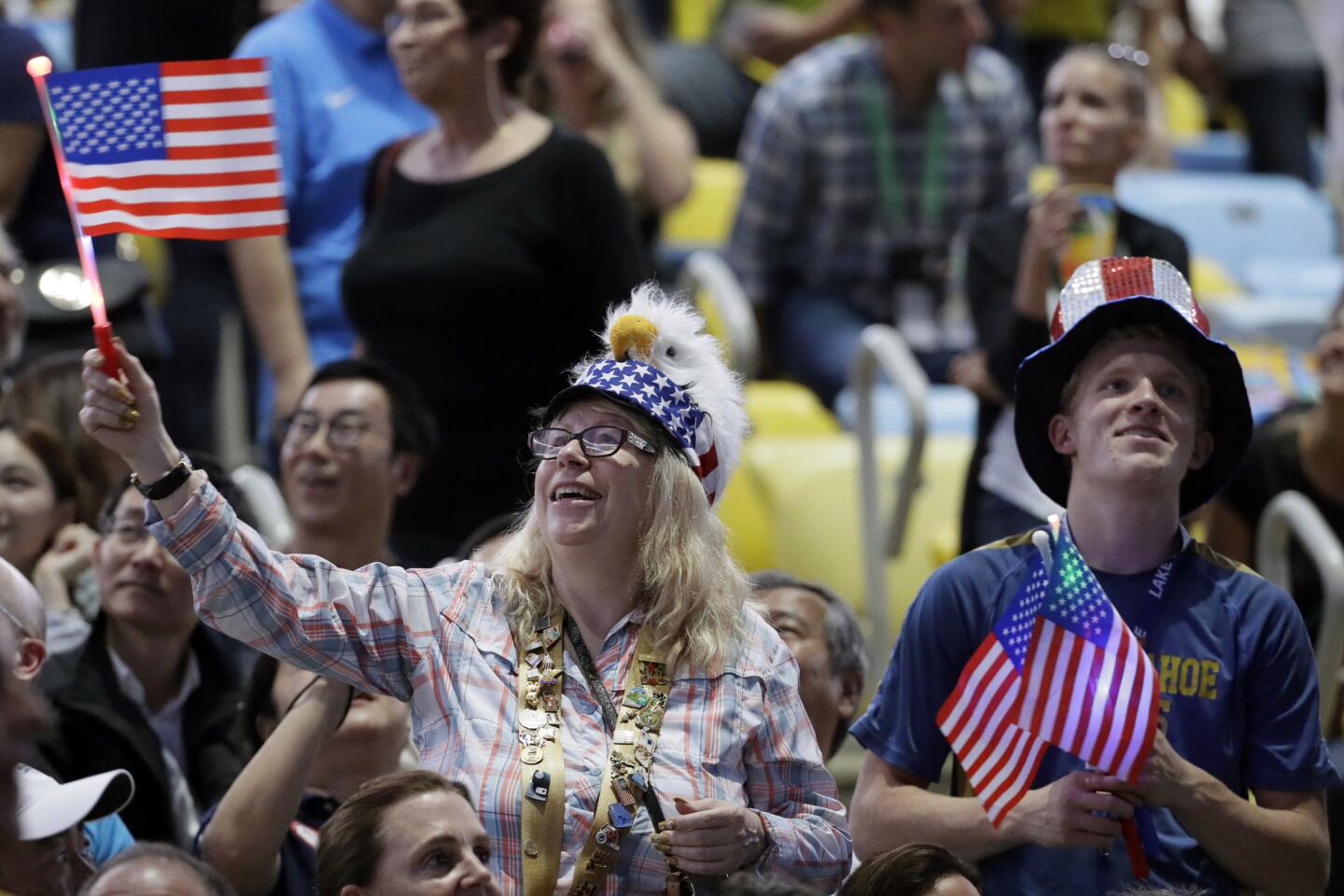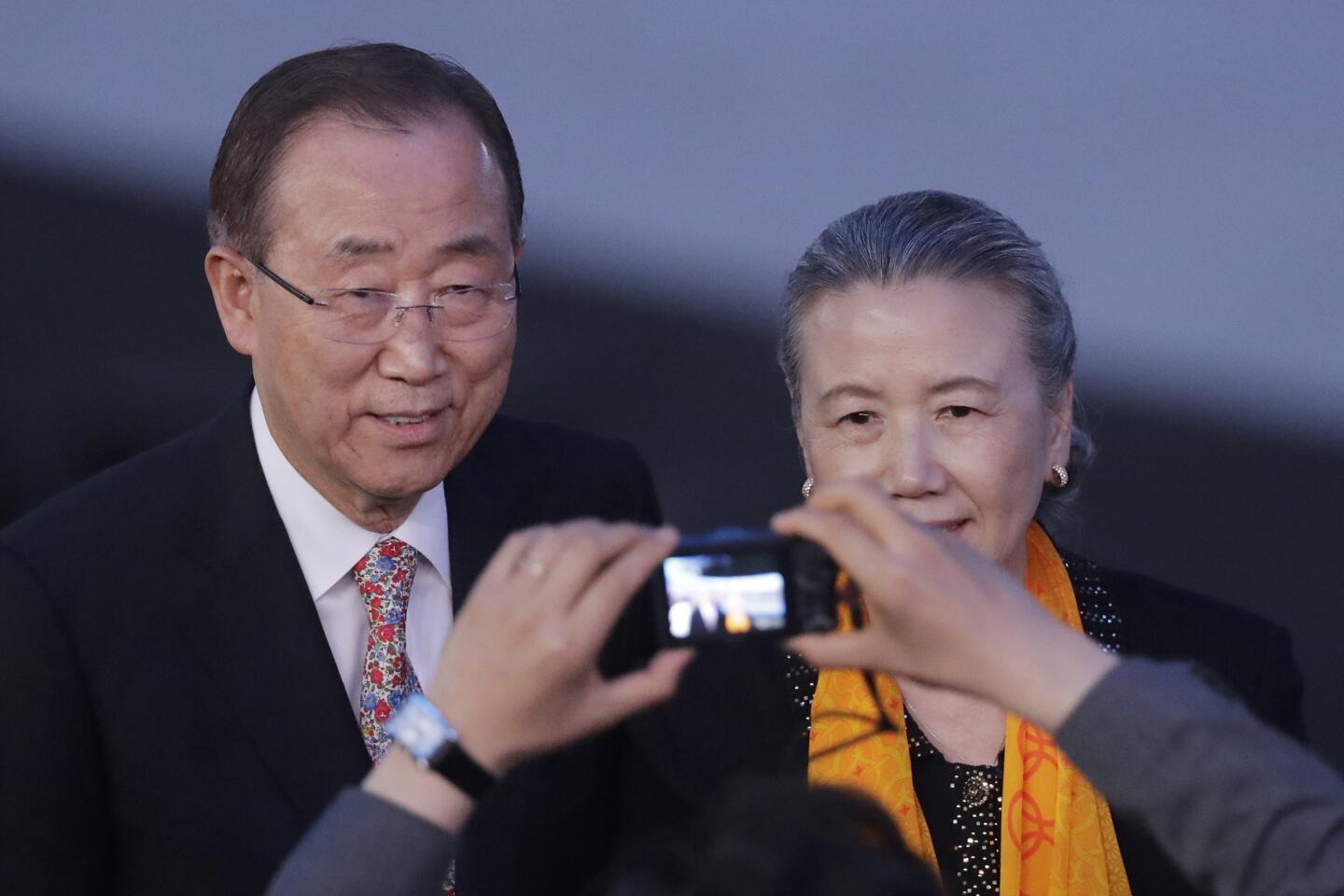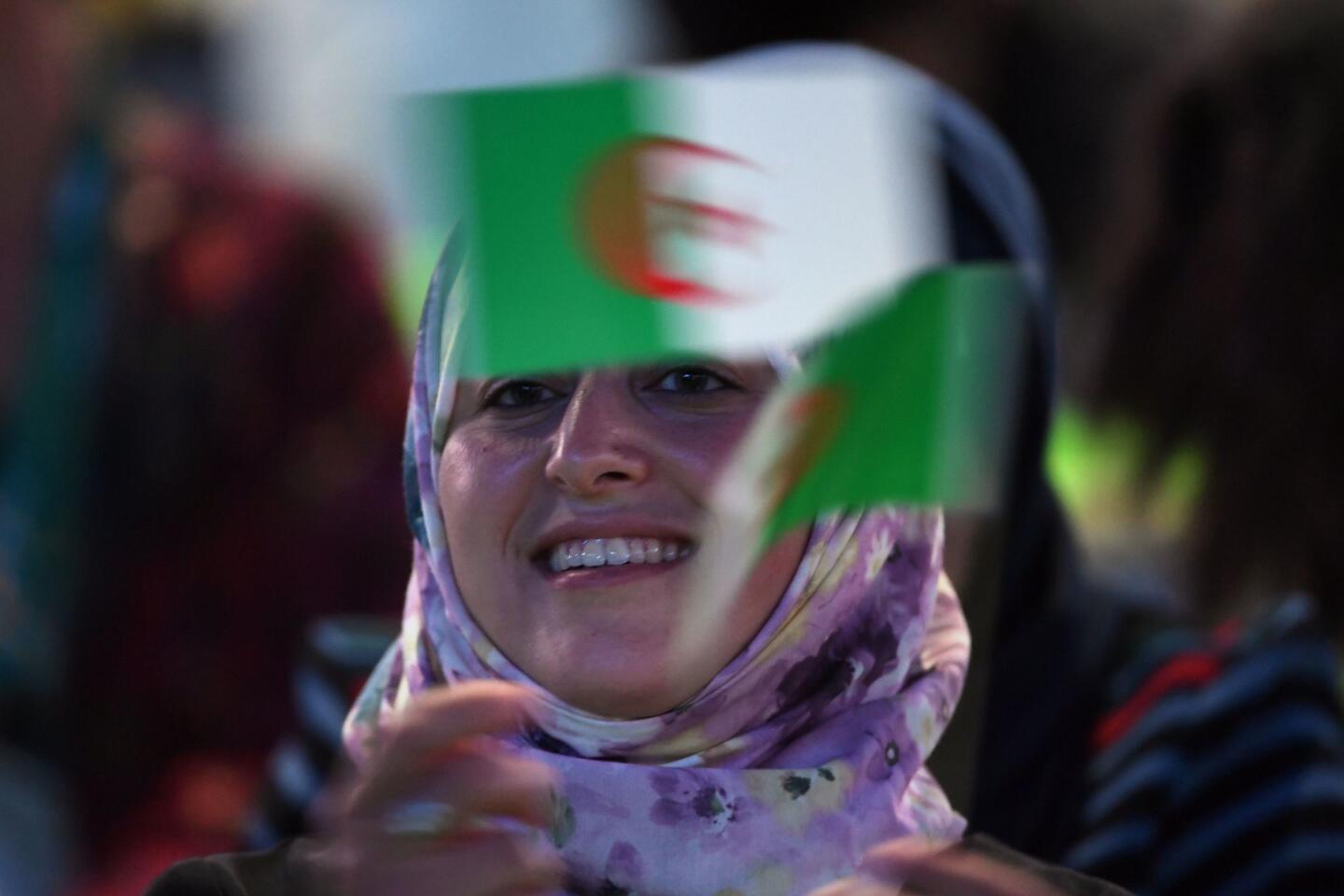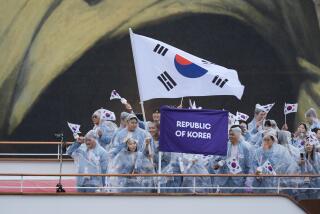As Rio Games open, Brazil downplays politics — including its interim president
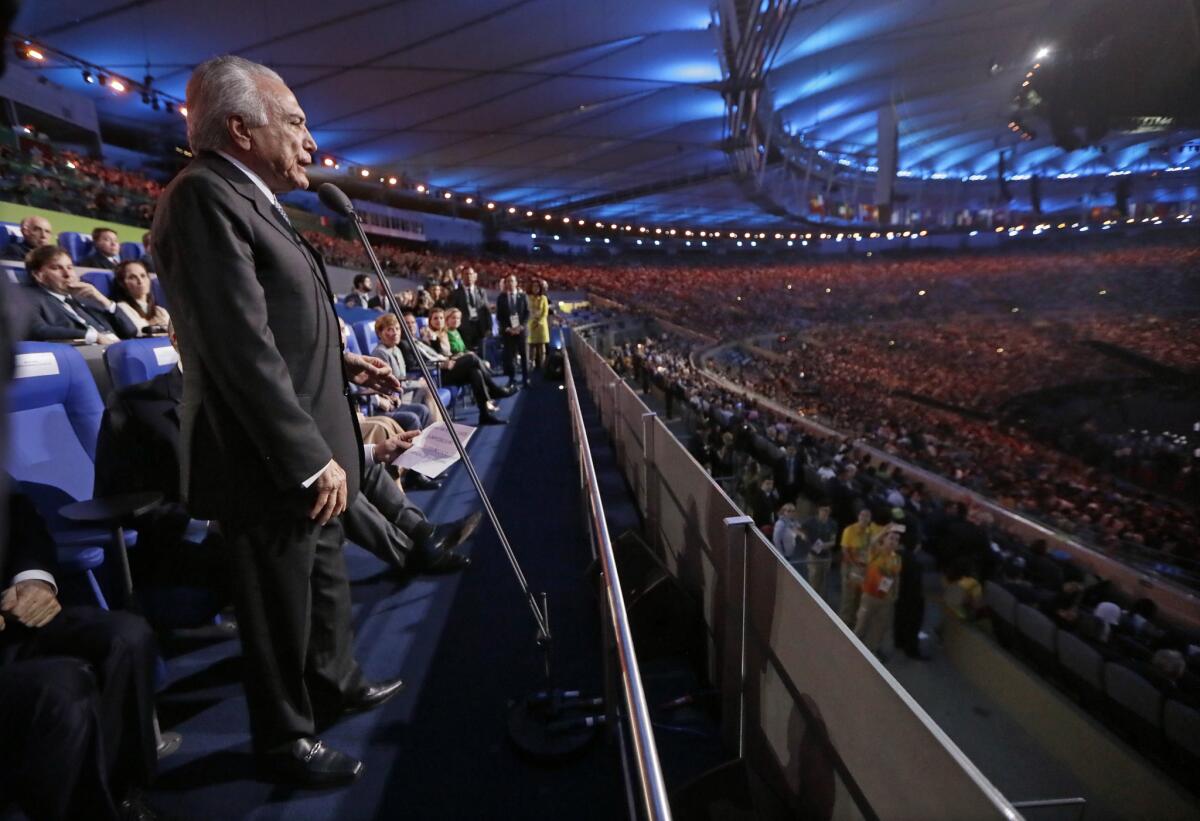
- Share via
Reporting from Rio de Janeiro — After weeks of speculation that Rio 2016 wouldn’t be able to pull it off, all went according to plan on Friday night – except for one thing. Despite being part of the official program, interim President Michel Temer was not introduced as the opening ceremony began.
Temer, an unpopular vice president who took power in May as the result of a controversial impeachment process, was nowhere to be found.
On social media and in the hallways of the huge Maracana soccer stadium, people began to whisper, or shout, where is he? Is he dodging the opening ceremony to avoid being heckled? Will any national leader officially open the Games?
Three hours later, he appeared. In an apparent attempt to minimize expected boos, he was not introduced by name or title, and a voice simply started talking quickly. But by the time the crowd figured out who it was, they jumped on him as expected, and drowned out the second half of his 13-word speech. A much smaller counterattack managed to add some cheers to the mix, creating a political cacophony underlining just how strange a situation Brazil faces.
South America’s first Olympiad has come in the middle of a catastrophic economic and political crisis, which will not be resolved until elected President Dilma Rousseff faces a Senate impeachment trial this month. In his short tenure, Temer has installed his own Cabinet – three members immediately fell amid corruption allegations – has taken the country quickly to the right, and faced accusations from Rousseff and others that he has seized power through a nonmilitary legislative “coup.” As the 31st Olympiad unfolds over the next two weeks, it could be decisive for the direction the continent’s largest country takes, and Brazilians were watching Friday’s ceremony closely for political symbolism.
“I’m glad he finally showed up, and I was glad to hear the boos,” said Patricia Machado, a 23-year-old student in Rio de Janeiro watching at home. But she said she mostly loved the ceremony. “They showed our true diversity. They used all Brazilian music.”
Indeed, if there was a single word of English sung in the hours of local music, organizers managed to hide it better than they hid Temer. For most of the night, movie director Fernando Meirelles treated Brazil to a soaring moment of national affirmation, focusing more on local history and cultural significance than on broad stereotypes that might appeal to a lay global audience.
After taking a beating in the international media for weeks, the Rio Olympics arrived with a moment of celebration welcomed heartily by the locals in attendance. When Carlos Arthur Nuzman, president of Brazil’s Olympic committee, said, just a little defiantly, “I am proud of my city, my country, my people,” the crowd exploded in joy once more.
By putting environmental causes, a female rap duo, indigenous Brazilian history, and music from Brazil’s favelas center stage, the show felt slightly more reminiscent of the values of the embattled left-wing Workers’ Party of Rousseff and her predecessor, Luiz Inacio “Lula” da Silva, than the stiff conservatism of Temer. But for the most part, the night wasn’t about differences.
Apart from the seconds when Temer appeared, the message was one of national unity. After the show ended, the crowd burst spontaneously into a national soccer cheer together: “Eu sou Brasileiro, com muito orgulho, com muito amor” — “I am Brazilian, with lots of pride, and lots of love.”
More to Read
Go beyond the scoreboard
Get the latest on L.A.'s teams in the daily Sports Report newsletter.
You may occasionally receive promotional content from the Los Angeles Times.
